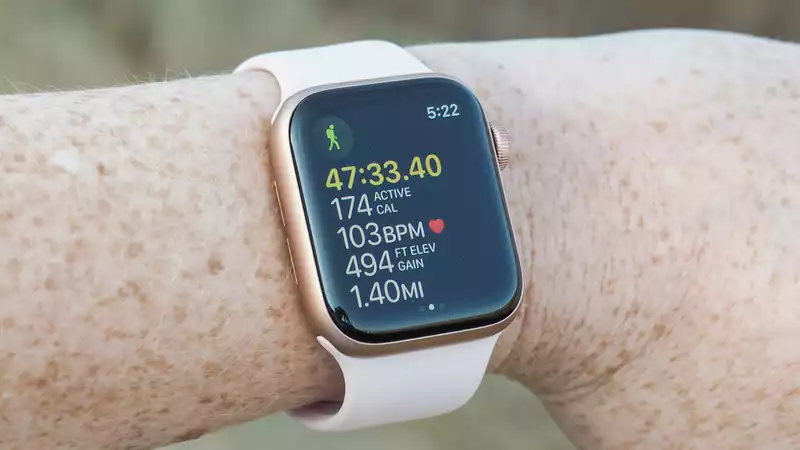Apple is increasingly touting the health monitoring capabilities of the Apple Watch, with talk of the Apple Watch 7 non-invasively monitoring blood glucose levels, which would complement the wearable's ability to detect falls and monitor atrial fibrillation
And now researchers at Stanford University have found that even the older Apple Watch 3 can be beneficial for physicians monitoring cardiovascular patients awaiting treatment
As first found by MyHealthyApple, the trial looked at 110 patients scheduled for vascular or cardiac procedure conditions to see if remote testing for frailty matched the results of directly administered tests
Patients were defined as frail if they traveled less than 300 meters during the 6-minute walk test (6MWT), and a version of this was incorporated into a custom-made VascTrac app so that researchers could compare it to the same test performed in clinical conditions To assist with this, patients were given an Apple Watch 3 and an iPhone 7, which not only provided the 6MWT itself, but also passively collected activity data for analysis
In a clinical setting, the Apple Watch was found to assess frailty with 90% sensitivity and 85% specificity compared to the standard 6MWT test This is believed to be related to the tendency of patients to stick to a regimen if not actively monitored, but is still impressive and could really help patients living with cardiovascular disease
"In this longitudinal observational study, passive activity data acquired on the iPhone and Apple Watch accurately predicted 6MWT outcomes in the clinic" This finding suggests that remotely monitoring and assessing frailty and functional capacity in patients with cardiovascular disease may allow for safer and higher resolution monitoring of patients"[11
More importantly, despite the limited "technology literacy" of the patients evaluated (23% were described as "smartphone naïve"), 84% of participants were able to complete the entire study without problems Encouragingly, in this study, the results of the dedicated 6MWT relied on a high level of communication from administrators, who encouraged participants who did not complete the test at home, but "the passive activity data were almost as clinically beneficial as the 6MWT at home
However, the authors point out several shortcomings Not only was the number of patients small (110), but because the study was conducted at a Veterans Affairs hospital, 99% of the participants were male Nevertheless, the ability to collect useful data remotely is a good thing in a time when face-to-face contact is limited The benefits of telemedicine and telemonitoring - convenience, lower costs, and improved data quality - have long been noted, but the COVID-19 pandemic has made it imperative to ensure safety"
Interestingly, while this study was conducted using the custom-made VascTrac app, as of watchOS 7, 6MWT is now available to Apple Watch wearers without an additional app It is quite possible that the preliminary data from this study was the impetus for Apple to add this 6MWT and other mobile health statistics to the wearable










Comments